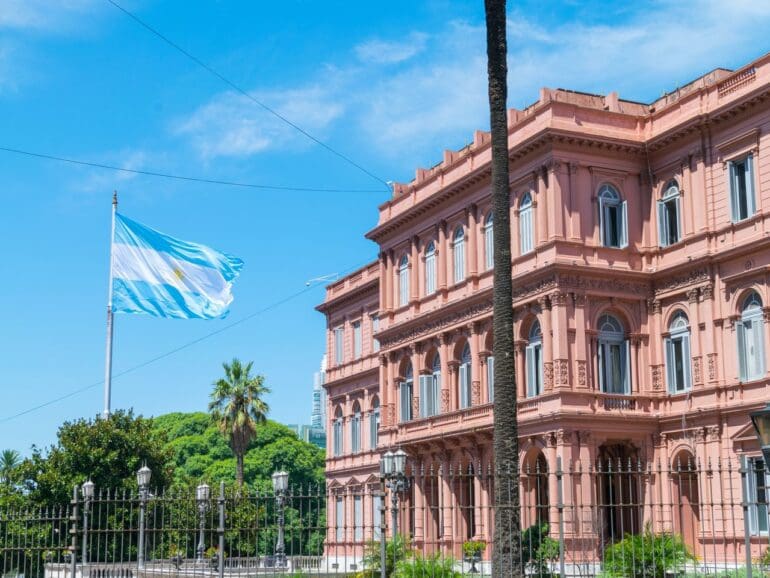Regulation in the financial technology and crypto industry is moving forward in Latin America, with many of its countries working on adjusting legal frameworks for the sector.
Argentina is one of South America’s three most significant ecosystems (after Brazil and similar to Colombia). Yet despite fast progress in QR code payments, regulation has lagged in recent years in the face of new trends such as Open Finance.
For this 2023, experts argue that such a framework looks unlikely in which financial institutions openly share clients’ data. Industry leaders say that what is more bound to happen is for Argentina to progress on cryptocurrency regulation.
The country is one of the region’s most significant crypto adopters. Beyond the price drop, the case for stablecoins remains strong as the technology retains its lure in inflationary hotspots.
Argentina’s Blockchain National Committee
In December, the government created the Blockchain National Committee. The goal is to clarify specific guidelines and implement the technology within the administration.
Cryptocurrency regulation in Argentina so far is mainly related to taxing financial gains. Also, to weed out fraudsters and Ponzi schemes in the ecosystem, which are all too frequent in Latin America. Last year, the central bank barred banks from operating in crypto, even on behalf of their clients.
However, unlike other countries in the region, Argentina does not have an encompassing framework. That is the case in Brazil, while the recent fintech law in Chile incorporated cryptocurrencies as digital financial assets.
Now some believe Argentina could follow.
“Argentina will likely have a regulatory framework for Virtual Asset Service Providers (crypto exchanges) this year,” Mariano Biocca, executive director at Argentina’s fintech association, told Fintech Nexus. “We are working actively with the government bodies to achieve a healthy regulatory scheme that does not affect innovation incentives.”
According to a spokesman who spoke to Fintech Nexus at one of Argentina’s leading crypto companies, the private sector is working closely with government agencies to develop regulation.
Adoption stands out in inflation hotspots
In Argentina, cryptocurrencies appear increasingly less as an investment. Instead, they stand out as a viable alternative for everyday payments. The local currency’s weakness, rampant inflation, and restraints on access to foreign currency make a stronger case for stablecoins adoption.
Market estimates reported by Argentine fact-checking agency Chequeado. suggest there can be around 3 million users in Argentina alone. “Consumers view crypto as an alternative source of inflation protection and access to dollar peg digital currency (Stablecoins),” a report from Americas Market Intelligence on Latin America adoption said.
In that regard, some argue specific regulation could help set a level playing field for companies. Also, to reassure users with a more robust legal background.
“The regulation provides a framework of security and clarity for companies that defines what can and cannot be done,” Biocca said. “It generates peace of mind and predictability for users and investors.”

QR payments growing, Open Banking not in the cards
Back in late 2021, following a surge in QR codes in Argentina, the regulator launched Transfers 3.0. The framework allowed for the interoperability of the codes. This meant any virtual account could use the existing network, whether provided by a digital bank or financial institution.
The local fintech association expects the central bank to focus on improving the system rather than unveiling new projects such as Open Finance.
“In the immediate future, I think that the focus will be on the pending definitions in Transfers 3.0 and interoperability of instant payments,” said Biocca. “Although they have significant adoption, some issues still need to be resolved.”


